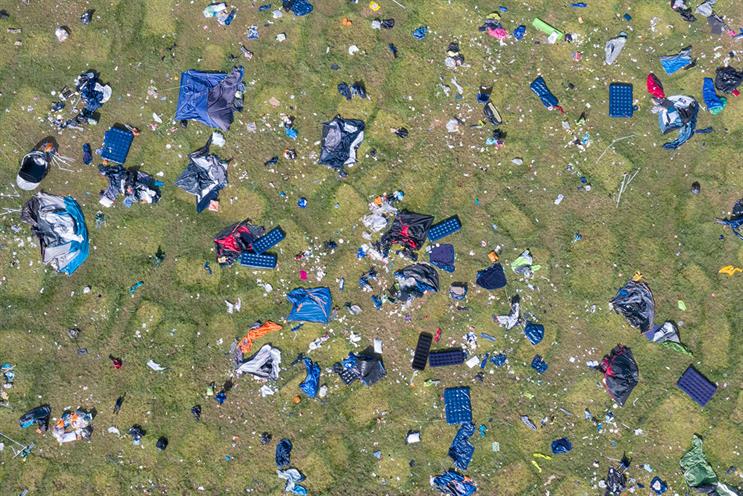With increased urgency surrounding the plight of our planet coming to the fore in recent years, the experience industry had really begun to double down on sustainability in the pre-pandemic era. Then as the pandemic itself arrived, we saw a transition to more sustainable events as virtual became the requirement.
Now as we gear up for a summer of in-person events ranging from the sold-out Leeds and Reading festivals to Goodwood Festival of Speed and Fintech Week London, and with Earth Day on the horizon, I've been spending a lot of time thinking about what can be done to further minimise the experience industry's impact on the environment during this transformative time.
Weaving sustainable practices throughout the event lifecycle
Sustainability forms an important part of brands' corporate social responsibility initiatives now. And as brand experience agencies, it's our responsibility to educate our clients about the specific practices they can implement to minimise the impact of their events and activations. We need to include them in our proposals, work only with suppliers who live and breathe these practices, and walk the talk on event day.
These practices are varied and extensive, but might include using virtual registration and networking tools instead of relying on lanyards, eliminating single-use plastics and looking to materials like bamboo, designing and producing set builds using sustainable materials along with an established set of re-uses in mind, working with venues that have active sustainability programs such as exclusive use of LED-only lighting, and partnering with organisations to prevent food wastage.
We should also all strive to develop standardised internal sustainability goals and work together to develop frameworks that inform each and every project we work on – take industry organisations such as Isla, launched in 2020, who are a great example of the work being done in the way of standardisation.
Adversity: it's enabled sustainable progress
While the industry has no doubt faced its fair share of challenges during the pandemic, one key positive we can take away from all of this is that our environmental impact has decreased.
The rise of virtual has eliminated the need for people to physically travel to an event, we've seen much less food wastage as audiences either consume their own meals from the comfort of their homes or event organisers send them locally sourced, portion-controlled meals. And overall power usage at large venues has declined significantly since so many have been closed awaiting the return of live events.
All of these changes contribute to lower emissions across the board, and virtual also enables greater accessibility – people who otherwise might not be able to attend an event in person, because of financial or geographical barriers, can join in on the action virtually.
Applying our pandemic learnings to in-person events
There's definitely nothing more powerful than a face-to-face experience, but what if we made sure they all had a virtual component? People would feel less inclined to travel to every event throughout the year, select a handful to go to in-person instead, and tune in to the rest virtually.
For this to succeed we'll need to focus on our content intelligence strategy, and ensure virtual attendees aren't an afterthought but treated to experiences that are on par with their physical counterparts. The benefits of this would be threefold – consumers get to enjoy the experience regardless of where they are, the event's reach is amplified, and carbon emissions remain at reduced levels.
From unique food ingredients and dishes to tech packages, we will have all leaned on local suppliers to enhance the attendee experience at our virtual events over the last year. Continuing to stay local wherever possible will help us reduce our emissions, while also supporting many of the small businesses that have been hit the hardest – I think it's safe to say we've grown fonder of supporting our local communities and have witnessed the positive impact this can make.
By no means am I advocating for days filled with virtual conference calls, but the pandemic really has shown us that we can still do great work while apart. What if, as an industry, we committed to not only catering to virtual event attendees in the name of sustainability but reducing the travel we do for pitches, pre-production meetings and debrief sessions, as well?
Not two events are the same, and as we return to live, success in sustainability will lie in both leaning on pandemic learnings and looking to the practices we leveraged pre-pandemic – a few of which I mentioned above – ensuring they firmly shift from a "nice to have" to a "must-have".
I can't wait to see you all out there – safely and sustainably – in the field soon!
Claudia Stephenson is managing director, INVNT EMEA
Picture: camping equipment and rubbish left behind at Boomtown Fair August 2019 (Getty Images)


